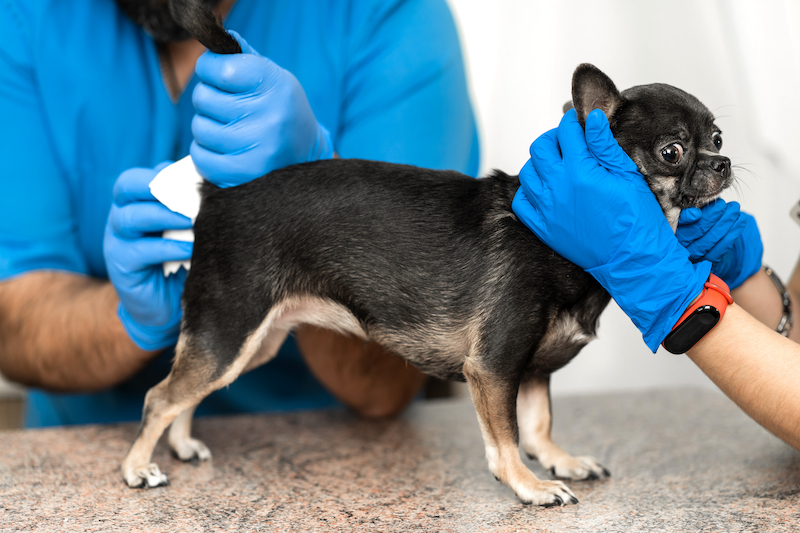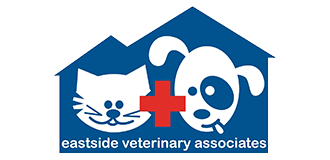
When Your Main Squeeze Needs Anal Gland Expression
Anal gland expression might not be the topic of choice in most social circles, but it is a very common issue in pets. Perhaps bringing the smelly, funky issue into the light could help prevent scores of cats and dogs from living through the discomfort of impacted or infected anal glands. That’s where we come in!
Get Ready For This
The anal glands are essentialy scent glands. Located exactly where you think they are (at the 8 and 4 position on either side of the anus, just below the skin), these glands help animals mark territory with a dark, strong-smelling fluid. During defecation, the stool puts pressure on the anal glands causing them to squeeze out the liquid along with the waste. This is naturally-occuring anal gland expression.
Potential Problems
Unfortunately, the sacs that hold the fluid don’t always empty, or the fluid becomes too solid to pass. This is known as impaction, and can become a hotbed for bacteria. This issue starts as minor discomfort but can quickly develop into full-blown infection if the pressure isn’t relieved.
Some animals may experience problems related to the anal glands more than others. Other factors can include obesity, skin infections, allergies, incontinence, skin mites, and hypothyroidism. We can work with you and your pet to get to the bottom of any underlying causes of frequent impaction issues.
Getting Involved
Owners of dogs that scoot their bums on the carpet or upholstery know that anal gland expression is imminent. Pets may also start to lick their rectum more than usual. Other signs include straining or crying when defecating, swelling around the rectum, and blood in the waste. These signs indicate that a pet needs help as soon as possible.
An anal gland infection must be cleaned out and treated with an antibiotic and pain medication. Left alone, a pet could face a ruptured abscess that requires emergency surgery and drainage.
Anal Gland Expression
The basics of anal gland expression involve manually placing pressure on the glands with a gloved finger inserted into the recturm. This process requires gentle handling until the gland is fully emptied. Expressing anal glands internally is usually performed by a veterinary team member whereas groomers usually apply pressure externally.
Frequent or unnecessary attention to this area can actually result in painful inflammation, scarring, and narrowing of the duct. In other words, if your pet isn’t experiencing problems related to their anal glands, don’t go there.
Part of the Puzzle
Anal gland expression may or may not be something you ever have to deal with. But we can assure you, the more you know about it the better. At Eastside Veterinary Associates, our doctors are experts at distinguishing anal gland issues from other problems, and advising of a treatment plan to help your pet.
If you notice symptoms of anal gland issues , please call to schedule an appointment with our doctors at:
- Kirkland: 425-882-7788
- Newcastle / Renton: 425-276-4100
Our team is always happy to help you at Eastside Veterinary Associates.
